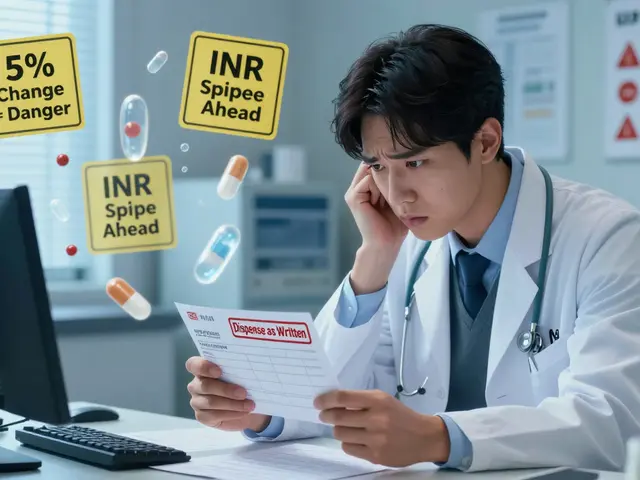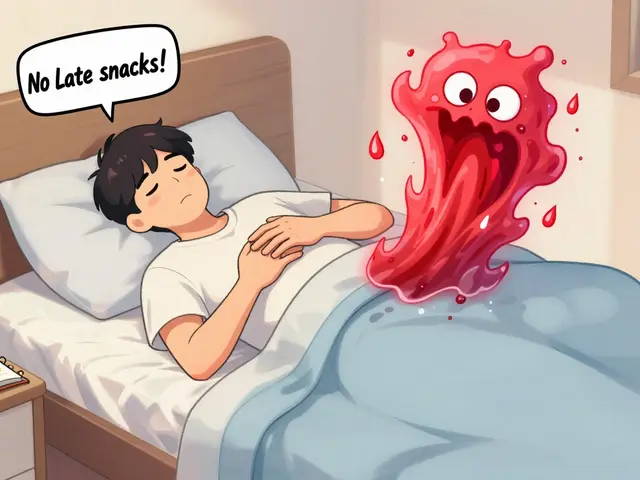
The connection between opioid addiction and trauma is often downplayed, but it's pretty significant. Many folks struggling with addiction have faced some kind of trauma, be it emotional, physical, or both. So, why does this matter? Well, understanding this link could be the key to better recovery strategies.
When someone experiences trauma, their brain might get stuck in a fight-or-flight mode. Opioids, for some, might seem like a way to momentarily escape that constant stress. But here's where it gets tricky – over time, the brain craves that relief, spiraling into addiction.
But not all hope is lost. With approaches like trauma-informed care, recovery is more than possible. This means treating addiction by also tackling the root trauma. Done right, this not only helps wean off opioids but also rebuilds the emotional wellbeing of the individual.
- The Hidden Roots of Addiction
- How Trauma Fuels Dependency
- Recognizing Symptoms of Trauma-Driven Addiction
- Effective Treatment Approaches
- Healing through Trauma-Informed Care
- Real Stories of Recovery
The Hidden Roots of Addiction
Understanding the hidden roots of opioid addiction requires us to examine what usually lurks beneath the surface—trauma. Researchers have found a strong correlation between traumatic experiences and the likelihood of developing an addiction. If you think about it, it makes sense. When someone undergoes a traumatic event, it can leave emotional scars that might last for years.
So, how do these experiences lead to addiction? Trauma can mess with the brain's chemistry, flipping it into a perpetual state of stress and anxiety. Someone who's feeling this might turn to opioids as a comfort blanket, trying to numb the pain or escape harsh memories.
Childhood Trauma and Its Impact
Experiences in childhood have a big impact. Kids who grow up in unstable or abusive situations are more likely to turn to substances as adults. Think of it as their way of coping or trying to address unmet needs. The mind looks for relief, and sometimes, substances like opioids seem like the only option.
Stressors in Adult Life
It's not just the past that affects addiction. Current stressors like loss of a job, a relationship ending, or other life-altering events can trigger someone to seek solace in opioids. The initial use might bring temporary relief, but it often spirals into a cycle that becomes tough to break.
The Cycle of Emotional Numbing
Once opioids enter the picture, they offer a quick, though short-lived, escape. But with use, what starts as emotional numbing can soon become dependence. The body begins to demand the substance even when the initial reason for using it was to forget pain, leading to addiction.
How Trauma Fuels Dependency
Ever wonder why some folks are more likely to grapple with opioid addiction than others? A major culprit can be trauma. It's not just the big, obvious traumatic events like natural disasters or serious accidents. Often, it's the quiet, ongoing stuff—like emotional neglect or verbal abuse—that can really mess with our heads.
See, trauma messes with the brain's wiring. It ramps up stress hormones, keeping us in perpetual state of anxiety or hyper-awareness. That’s where opioids step in—providing much-needed relief from this emotional chaos. It's like using a blanket to cover a gaping wound. It might feel better for a bit, but the issue is far from resolved.
Why Some Turn to Opioids
Imagine dealing with constant stress—the kind where your body and mind are on full alert all the time. That's exhausting, right? Opioids can provide a temporary escape from this constant stress, numbing that pain for a while. They're like a shortcut to feeling okay, but the price is steep.
For some, this cycle creates a dependency. The brain falls in love with that temporary calm and starts craving it. This is how trauma pushes some down the path of addiction, where they need opioids not just to feel good but to feel 'normal'.
Stats Paint a Picture
| Factor | Contribution to Opioid Addiction (%) |
|---|---|
| Childhood Trauma | 64% |
| PTSD | 50% |
| Emotional Neglect | 40% |
The numbers are pretty telling. Studies show that childhood trauma alone contributes to opioid addiction in a substantial way. And we're talking more than half of the cases. That’s huge!
Understanding these links is key. It's not about blaming—it's about getting to the root of the issue. People dealing with addiction need support, not just to break free from opioids but to heal from their traumas. That way, the chances of them slipping back into dependency plummet.
Recognizing Symptoms of Trauma-Driven Addiction
Spotting the signs of trauma-driven addiction can be tricky because it often mimics symptoms seen in regular addiction cases. But here’s the deal – when we know what to look for, it gets easier to help someone struggling with this dual burden. It's not just about the physical signs of opioid addiction but also the emotional aftermath of trauma.
Behavioral Changes
Look for sudden shifts in behavior. Someone might start isolating themselves or snapping even at little annoyances. Why? Because their mind is juggling trauma and dependency, which can lead to mood swings and anxiety. They might also appear hyper-vigilant, kind of always on edge.
Emotional Signs
Depression and panic attacks are common when trauma has a grip on someone. They might also show symptoms like guilt or shame, often about the very events causing their trauma. It’s a cycle where emotional pain feeds addiction, and vice versa.
Physical Indicators
Besides the usual signs of opioid use, like drowsiness or marks on the arms, people with trauma-driven addiction might suffer from insomnia or nightmares. Why? Because unresolved trauma tends to hit hardest when the mind's at rest.
Noticeable Social Impact
Relationships often take a hit. A person might distance themselves from family or friends. And let's be honest, it's not just about withdrawing. Sometimes it's about the fear of judgment or not wanting loved ones to know about the addiction.
Keep in mind that every individual’s experience is different. Some might show all these signs, others maybe just a few. But knowing what to look for brings us a step closer to a potential breakthrough in supporting their journey from addiction to recovery.

Effective Treatment Approaches
Treating opioid addiction that's tangled up with trauma isn't a one-size-fits-all deal. It's crucial to find the right path that addresses both the physical dependency and the emotional scars. Here, we'll break down some treatment strategies that have shown promising results.
1. Medication-Assisted Treatment (MAT)
MAT can be like a lifeline for those struggling with opioid addiction. This approach combines medications like methadone, buprenorphine, or naltrexone with counseling. The idea is to ease withdrawal symptoms and curb cravings, which gives patients a chance to focus on healing their mental health.
2. Cognitive Behavioral Therapy (CBT)
CBT is all about changing negative thought patterns. It's often used to help people with trauma-related addiction issues identify and combat the thoughts contributing to their addiction. Think of it as mental sorting – understanding what's happened and figuring out how not to let it control you.
3. Trauma-Informed Care
This approach recognizes that past trauma affects how someone responds to treatment. By adjusting strategies to be sensitive to these experiences, it helps patients feel safer, more understood, and open to recovery. It’s about considering the whole person, not just their addiction.
4. Support Groups
Connecting with others who have faced similar struggles can be incredibly powerful. Groups like Narcotics Anonymous provide spaces where people can share experiences, offer support, and learn from each other’s journeys.
5. Holistic Therapies
Things like yoga, mindfulness, or art therapy are proving their worth in treatment settings. They might not replace medications, but they offer alternative ways to deal with stress and trauma, helping to create a more balanced recovery plan.
Mental health and addiction recovery can feel like a maze, but with the right combination of these methods, people have a shot at reclaiming their lives. It's all about finding what works for the individual, considering their unique experiences with both opioids and trauma.
Healing through Trauma-Informed Care
The idea of trauma-informed care is gaining ground, and for a good reason. It focuses on understanding the impact of trauma on an individual’s life and how it can drive behaviors like opioid addiction. This approach doesn’t just aim to curb addiction—it looks deep into the underlying causes as well.
What's different about this method? It doesn't treat addiction as an isolated issue. Instead, it sees the person as a whole, considering the emotional scars that might contribute to their dependence on opioids.
Principles of Trauma-Informed Care
- Safety: Making sure that the treatment environment is physically and emotionally safe.
- Trust and Transparency: Building a foundation of trust between patients and healthcare providers through open communication.
- Peer Support: Encouraging connections with others who have faced similar struggles, offering a sense of community and shared experience.
- Empowerment: Helping individuals regain control of their lives by acknowledging their strengths and capabilities.
Benefits of Addressing Trauma
This care model has some perks. When you tackle trauma head-on, you don’t just reduce reliance on opioids. Patients report better mental health and improved relationships. Many find themselves more resilient when dealing with life's ups and downs.
According to a recent study, programs emphasizing trauma-informed practices increased recovery success rates by up to 30%. That’s no small feat and shows the power of understanding a person’s complete story.
Implementing Trauma-Informed Practices
If you're wondering how to kickstart this kind of care, it often begins with training healthcare professionals to recognize signs of past trauma. Then, creating a treatment plan that includes therapy tailored to individual experiences is crucial.
Ultimately, the goal is to rebuild a person's life from the ground up—not just fix the visible problems. This way, the path to recovery becomes a holistic journey, addressing both the addiction and the trauma lurking beneath it.
Real Stories of Recovery
Every story of recovery from opioid addiction is unique, yet many echo the common thread of trauma-impacted lives making a comeback. The journey isn’t an easy path, but people do make it back.
The Journey of Sarah
Sarah’s story is a testament to the resilience of the human spirit. Battling childhood trauma, she turned to opioids in her early 20s as a way to cope. She thought there was no way out until she participated in a trauma-informed care program. It wasn't just about cutting opioids; it was about processing her past. Understanding her trauma made a huge difference in her recovery. Now, five years clean, Sarah works with others in recovery, helping to guide them through similar battles.
Mark's Road to Recovery
Then there's Mark, a former construction worker whose opioid dependency started after a work-related injury. Prescribed opioids for pain management, it was a slippery slope. Mark struggled for years, feeling trapped both by his physical pain and past emotional trauma. With a supportive therapy group that addressed both his addiction and mental health, Mark found a new way forward. He discovered alternative pain management techniques and, in turn, rediscovered a zest for life he had long forgotten.
The path for recovery can be long and winding, with setbacks along the way. But as these stories show, addressing the trauma elements in addiction can be a true game-changer. If ever you're or someone you know is in a similar boat, take heart in these stories—they’re not alone in this fight.
18 Comments
Write a comment
More Articles

Safe Allergy Medications During Pregnancy: What You Need to Know
Managing allergies during pregnancy requires careful medication choices. Safe options include nasal steroids like Rhinocort and second-gen antihistamines like Zyrtec. Avoid decongestants like Sudafed in the first trimester. Non-drug methods like saline rinses help reduce symptoms. Always consult your doctor before taking any medication.

Prescriber Attitudes Toward NTI Drugs and Substitution
Prescribers remain cautious about substituting generic versions of narrow therapeutic index (NTI) drugs due to safety concerns, despite FDA assurances. Real-world data, state laws, and clinical experience shape ongoing debates over substitution practices.

Mark Szwarc
March 9, 2025 AT 15:10The link between trauma and opioid use is more than a correlation; it's a causal pathway that many clinicians overlook. When a person experiences chronic stress, the brain's reward system rewires, making opioids an attractive shortcut for relief. Addressing the underlying trauma alongside medication can break that cycle and improve long‑term outcomes. This is why trauma‑informed care should be a standard component of any addiction treatment protocol.